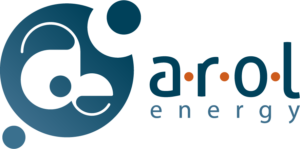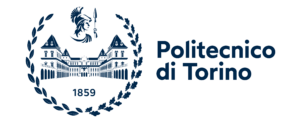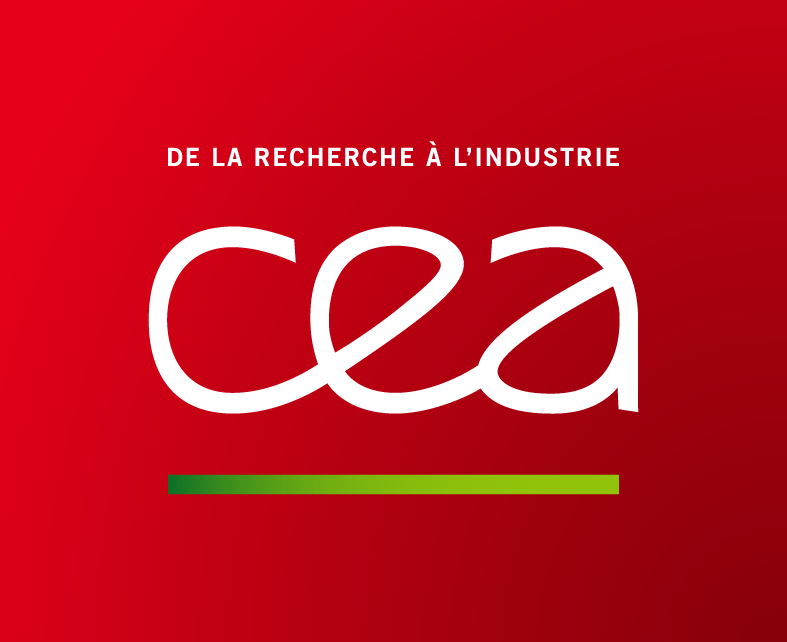

Coordinator
EPFL is one of Europe’s leading Research and Education Institutions (ranked number 12 in the QS World University Ranking of 2017-2018), with about 5000 staff (4000 academic), almost 5000 postgraduates, and more than 10000 BSc/MSc students (data for 2016). The Group of Energy Materials (GEM), led by MER Dr Jan Van herle, as a part of the Mechanical Engineering Institute (IGM) in the Faculty of Engineering Sciences (STI) at EPFL, has more than 25-year experiences on Solid Oxide R&D. Its strength is the strong coupling between multi-scale modelling, for both cell/stack-component and system designs, and experimental work on components. This coupling has allowed the optimisation for several planar stack designs and detailed modelling of degradation issues, which contribute significantly for the improvement of the SOC technology. Biogas has been a keen subject at GEM going back to 2000, with a first demonstration project of an SOFC system on an actual agro-biogas site close to EPFL, where J Van herle performed the on-line gas monitoring.
Several highly cited biogas publications (J Power Sources) date from the early 2000’s. Later a full PhD thesis has been dedicated to the effect of biogas contaminants on the SOFC anode within the FCHJU SOFCOM project in collaboration with PTO. GEM is firmly interconnected with other research groups at EPFL, e.g., the group of Industrial Process and Energy Systems Engineering for employing advanced computer-aided methodology and tools to address key design and optimization issues of solid-oxide cell related processes and plants, Materials Institute and Chemistry Institute for detailed post-test analysis at the Electron Microscopy Centre. Together with a sister Lab in the Mechanical Engineering Institute (LA – Automation), model predictive control and real time optimisation (RTO) on fuel cell stacks and systems is being developed since several years. GEM is closely linked to PSI for biomass valorisation projects since 10 years and te start of a Swiss-wide initiative on wood gasification and use in SOFCs. Recently this has evolved to biogas, in particular for small scale application, through the Swiss-wide BioSWEET platform and consortium. A dedicated ‘Manure-to-Electricity’ working group with several experts from resourcing, digestion via gas analytics through CHP conversion is active since 2 years on this topic, in full synergy with W2W.

Partner
Solydera is an international group of companies, leader in the field of SOFC (Solid Oxide Fuel Cell) technologies and manufacturer of BlueGEN, the world’s most efficient micro-CHP (combined heat and power) appliance. Founded at the end of 2006 in Italy, it has rapidly developed into today’s corporation with branches also in Germany, Switzerland and Australia after the important acquisitions of HTceramix SA in 2007 and Ceramic Fuel Cells GmbH in 2015. Solydera is a continuously growing team of currently more than 200 people and operates two manufacturing plants for the production of m-CHP systems and fuel cell stacks and a highly-qualified R&D department focusing Associated with document Ref. Ares on product-improvements and new applications for the technology. In this regard, the team has already developed and tested a 10 kW system for application in data centres and takes part in different
projects for the development of new commercial solutions based on SOFC technology, such as the production of hydrogen and electricity for hydrogen refuelling stations.
Solydera’s primary aim is to bring fuel cell m-CHPs and other solutions to the mass market and is increasingly investing in the scaling-up of the production capacity and further technical
improvement of their technology platform in order to guarantee a continuous cost reduction and be able to offer ready-commercial products at competitive prices. With more than 1000 units already installed and the development of state-of-the-art fuel cell solutions, Solydera commits to contributing in first line to the energy transition of Europe.

Partner
Sunfire GmbH was founded in 2010 by a team of experienced managers and engineers. Today the company has 90 employees and is backed by Electranova Capital, Total Energy Ventures, Inven Capital and KfW.
Sunfire develops and produces high-temperature fuel cell (SOFC) and electrolyser (SOEC) systems.
SOFCs convert fuels and gases into electricity and heat for residential, commercial and industrial
applications. SOECs convert water with clean electricity into hydrogen. Both processes can be
combined to form a reversible device (rSOC). With these technologies, Sunfire addresses a multitude of problems in our energy systems. Sunfire’s SOC technology has been perfected to achieve the optimal balance between high reliability, low manufacturing costs, high electrical efficiencies and reversible operation. The company can draw upon 10 years of experiences in SOFC stack development. Sunfire´s stacks are integrated in fuel cell heating units that are currently evaluated in the framework of the CALLUX field test the European ene.field program.
SOEC development started in 2012. Stacks and stack modules have been successfully tested at
ambient and pressurized conditions. In 2014 first rSOC stacks test were performed, followed by a complete system development in cooperation with Boeing. Moreover, Sunfire owns proprietary knowhow in the fields of Power-to-Liquids and Power-to-Gas.

Partner
Biokomp is one of the leading producers of complete packages for natural gas, biogas, bio-methane, air and process gas compression & treatment plants of all sizes as well as special components.
Biokomp was established in 2011 in the industrial district of Vicenza, in North-Eastern Italy. Starting from a solid experience gained in the compressor industry, the company launched its activity aiming at the development of a cutting-edge solution for the compression of natural and explosive gases, starting from a new project, which intended to step beyond the conventional air compression packages.
Combining several multidisciplinary skills, Biokomp’s team can engineer and manufacture different gas processing units based on blowers, centrifugal, rotary, alternative compressors and special treatment plant. The key strength of the company is to provide strategic support and tailored engineering, in order to identify and manufacture the most efficient and convenient solution to the specific gas treatment and compression needs. Over the years, Biokomp has manufactured and installed over 140 gas compression and treatment packages worldwide.

Partner
Arol Energy is specialized in turnkey biogas purification units. The primary targeted market for the company is bio-methane production for grid injection and usage as biofuel for transportation.
On the bio-methane market, Arol Energy proposes turnkey products for biogas purification under the brand names AE-Compact, AE-Membrane and AE-Amine. With these products, Arol Energy is primarily targeting bio-methane production from agricultural and food waste with biogas flows
between 50 Nm3/h and 1000 Nm3/h. In the lower part of the range from 50 to 300 Nm3/h, Arol Energy offers solutions with AE-Compact & AE-Membrane based on membrane gas permeation, while above 300 Nm3/h, Arol Energy proposes its AE-Amine technology based on amine scrubbing.
Besides bio-methane, Arol Energy is also active in the field of more complicated biogas purification originating from landfills and waste water treatment plants. Arol Energy is currently developing a new siloxanes and VOC removal system as part of its R&D strategy. Other products available include adsorbents specifically designed to adsorb H2S under dry and/or wet conditions as well as liquid processes for H2S removal adapted to high concentration/high flow situations typically encountered in landfill gas applications.

Partner
PTO was founded 150 years ago and represents a leading public university in Italy and in Europe, in technical-scientific teaching and research. There are currently 26000 students on more than 115 courses. Staff members are more than 900 (professors and researchers), plus about 1000
administrative and technical staff. Politecnico di Torino is strictly connected with the enterprise
system, and has a long experience as partner in common research projects with other European and international centres. Almost 700 research project contracts in collaboration with industries and government-funded institutions provide an income of around 400 million Euros each year.
In particular, the Energy Department of the Politecnico di Torino – STEPS (Synergies of Thermochemical and Electro-chemical Power Systems) group, coordinated by Prof. Santarelli – is involved in experimental and modeling activities in the sector of electrochemical and thermochemical processes and technologies applied to the energy sector, with a special focus on Fuel Cells (from single cells to stack to complete demo systems, at both residential and industrial scale) including balance of plant studies (e.g. clean-up processes for FC fuels).

Partner
CEA (French Alternative Energies and Atomic Energy Commission) is a Research and Technology Organization (RTO). It aims to produce, integrate and transfer science and technology to help resolve the main EU challenges (low carbon energies, defence and security, information and healthcare technologies) and to exploit opportunities for new wealth creation, improved standards of living, and economic competitiveness. CEA brings together key players along the whole innovation chain, from fundamental to technological research, from product and process development to prototyping and demonstration, and to support full-scale implementation in the public and private sectors. CEA has a budget of B€ 4.3 (2015), more than 16,000 employees, filing more than 500 patents / year.
Within CEA, the LITEN institute (Laboratory for Innovation in New Energy Technologies) is fully dedicated to the program of new technologies for renewable energy and energy efficiency, in line with the French Grenelle environment summit, the Lisbon strategy and the European strategic plan for energy technologies. LITEN employs 950 people, has a budget of M€ 130, and works with more than 350 industrial partners. It addresses several renewable energy applications including hydrogen production through electrolysis, storage and fuel cells (PEMFC and SOFC).
Since 2000, LITEN is working in the field of SOFCs, and since 2005, LITEN has started an intensive program on high temperature steam electrolysis (SOEC) development for CO2-free hydrogen production assisted by national and EU projects. The approach in the field of SOFC/SOEC covers electrochemical characterization from button cells to stacks and systems, thermo-mechanical study of single components and of stacks, microstructure advanced characterization and complete operation modelling. This approach is complemented by techno-economic analysis and life cycle assessment.
With more than 40 patents and 55 reviewed publications in the field of SOFC/SOEC, CEA-LITEN is a recognized player in the field. CEA-LITEN is also working on rSOC technology with SYLFEN, a spin-off of CEA taking advantage of this technology specificity for their products. CEA is full member of the Hydrogen Europe Research.

Partner
PSI is the largest research institute for natural and engineering sciences within Switzerland. We
perform cutting-edge research in the fields of matter and materials, energy and environment and
human health. By performing fundamental and applied research, we work on sustainable solutions for major challenges facing society, science and economy. PSI is committed to the training of future generations. Therefore about one quarter of our staff are post-docs, post-graduates or apprentices. Altogether PSI employs 2100 people.
The Thermo-Chemical Processes (TCP) Group led by Dr Serge Biollaz has built over the years
several complex research facilities at PSI, ranging from the laboratory scale to small and large pilot plants. These facilities are used for research in cooperation with industry and for PhD theses. Experts in the group carry out measurements of bulk and trace compounds in gases at industrial plants in Switzerland and abroad. Technologically, the focus of the group is on issues related to catalytic methanation and gas purification. These two subject areas are supported by unique competences in the field of techno-economic modelling.

Partner
ENEA is a scientific RTD organisation with a commitment to sustainable economic development. In its fields of competence (engineering, materials science, chemistry, physics, geology, agriculture, information science, economics, meteorology and biology) ENEA is called upon to: promote and carry out basic and applied research and technology innovation, also through prototypes and product industrialization; disseminate knowledge to the public and transfer technology to industry and government, also through assistance in regulation and standardization; provide high-tech services, sustainability assessments of technology innovation and scenarios to policy makers and enterprises.
In these fields many programs/projects focused on advanced materials, electrochemistry,
characterization and design of fuel cells and hydrogen technologies are carried out, in co-operation with national and international industry, academic institutions and research organisations. ENEA participates/d in several topical EU-funded projects (CoMETHy, MCFC-CONTEX, qSOFC, HyLAW, BALANCE, NELLHI, SOCTESQA, INNOSOFC, SCoReD 2.0, ASCENT) and is fully active within the Research Grouping of the FCH JU for the building of the European roadmap towards full-scale FC & H2 deployment, as well as being coordinator of the European Energy Research Alliance (EERA) Joint Programme on FC & H2. Furthermore, ENEA is member of the International Electrotechnical Commission’s Technical Committee on Fuel Cells (IEC TC105), as Convenor of the Working Group 13 on Reverse Fuel Cell Stacks and Systems and participant in Working Group 7 on SOFC stack test procedures, and thus constantly updated about the latest in standardization and technology transfer to industry and transnational regulation. In terms of business development for the economy, ENEA facilitates innovation management and innovation processes in SMEs and industries participating in the Enterprise Europe Network (EEN) and the Knowledge Innovation Community (KIC) Inno-Energy.

Partner
EREP is a design and engineering consultancy office specialised in the treatment and the recovery of organic waste and effluents. Its specific expertise concerns the field of biological treatment and more particularly the production and use of biogas. EREP was created in 1980, has its headquarters nearby Lausanne (Switzerland) and hold an office in Lyon (France). With more than 35 years of experience, EREP assists from the phase of project definition as well as during its realisation and ensures assistance on site. Since years EREP represents the official competence centre for biogas energy from biomass in the French speaking part of Switzerland. An expertise perfectly independent from groups and constructors active in the field is guaranteed, which provides complete neutrality in EREP’s analyses and advice. EREP’s fields of activity concern the following domains: domestic waste, farm waste and effluents, industrial waste and effluents, sludge from wastewater treatment plants. Services at every stage of development are proposed: at project stage (technic-economic feasibility studies,
preliminary design, environmental impact reporting, expert opinion); at realisation stage (elaboration of tender documents/project specifications, guidance among service and equipment supplier technical propositions, assistance during construction); at exploitation stage (monitoring of plant performance, campaigns of waste/effluents characterisation); specific studies are performed (inventories, research projects, audits and expert evaluation) as well as communication and training tasks (organisation of seminars and study trips, set-up of training modules for plant operators, project developers and policy makers).

Switzerland Partner
Solydera SA (SP SA) is a dynamic and dedicated SME specialized in high-temperature electroceramic applications for energy and gas conversion. SP SA is Solydera SpA’s (Partner 2) competence centre for the development and engineering of high temperature membrane reactors, with particular focus on Solid Oxide Fuel Cells. Created in 2000, the company has strong relationships to both industrial and academic partners for the development of cost competitive energy conversion devices.
SP SA focuses its activities on market and product development, generating its revenues both through sales commission and engineering services. Its competence in system integration of the in-house developed SOFCpower module gives it a competitive advantage when establishing partnerships with large OEM companies in the combined heat and power market.
Based on more than 10 years of dedicated research in the field of SOFC at the Swiss Federal Institute of Technology in Lausanne (EPFL), SP SA was spun out in the year 2000. For the industrialization of its products on the way to mass production, SP SA is now integral part of Solydera S.p.A. in Trento, Italy.
